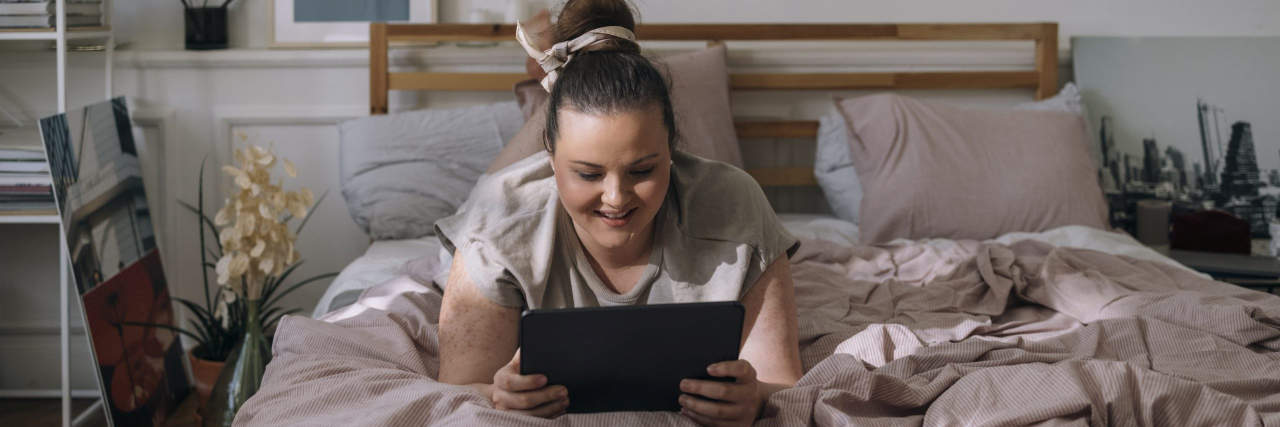A Plea to Make Room for Chronic Illness Stories in Popular Culture
“In diversity there is beauty and there is strength.” — Maya Angelou
I never saw myself reflected on TV or in books. A chubby small-town girl who liked to read and write didn’t really get much airtime on TV.
Still doesn’t.
Not to mention if that girl develops a chronic illness. And then another. And another.
As more minorities speak up and rightfully demand their stories be told, I want to speak out for people with disabilities and chronic illness to plead for the same.
It might be difficult to tell a compelling story about characters who spend much of their time in their homes, yet their stories must still be told.
Our stories.
Because we deserve to be seen and others need to see us. Because being seen helps validate our existence. Because others seeing people like us helps their understanding of us.
Because our stories being told can help form policies. Because our stories being told can help others going through the same type of story feel less alone.
Because our stories being told helps us feel seen, appreciated, part of society, and loved.
Because we are so much more than our illness. We don’t just write about our illness, we write about love, about fantasy and futuristic worlds, about joy and about heartbreak, and so much more.
Storytelling from all kinds of perspectives and about all kinds of people from all types of backgrounds enriches the human experience. Not just for people part of those groups, but also – or even more so – for those who have no experience with such an existence.
Empathy and compassion are what make us human. To reach empathy and to be compassionate means to understand that other people live under different circumstances than you and to accept those people without judgment or assumptions. Having their — our — stories told helps with that.
I feel so strongly about this that I’ve made it my job. I help fellow spoonies feel worthy of telling their stories and help them write fiction, because I feel the power and impact of both seeing yourself and not seeing yourself in the stories we consume.
Encountering people with illness in popular culture helps other people see us as fellow humans. It helps them understand us. It prevents them from judging us when we have to cancel at the last minute.
It will help people not to judge us when we have to take the one empty seat on a train because we cannot stand for long despite being “young.”
It will help politicians understand that even though we are ill we want to be — should be — part of society just as much as anybody else, and being a part of storytelling culture is such a huge part of that.
It is vital to have those stories told, or written, by the people who live the experience. As long as there is no level playing field in the arts, this needs to be the way to achieve it.
Plus, those living it bring insight into the story that abled people could never bring to the table.
And so I will continue to push for the stories of those disabled and ill to be told. I push for people with illness and disability to be able to play their part in telling those stories. So hopefully one day we can look back and realize that we no longer tell the story of illness, but the story of human beings who are also ill.
Until that day comes, I will continue to fight for the position of people with chronic illness and disability, and other minorities, in life itself, but also in art and in popular culture.
We belong to humanity, thus we should also belong to its cultural expression.
Getty image by FreshSplash.

